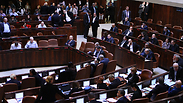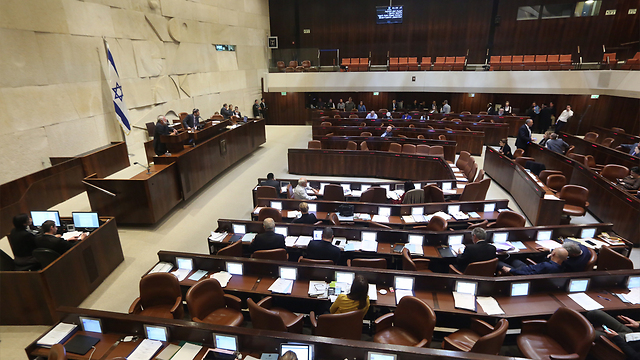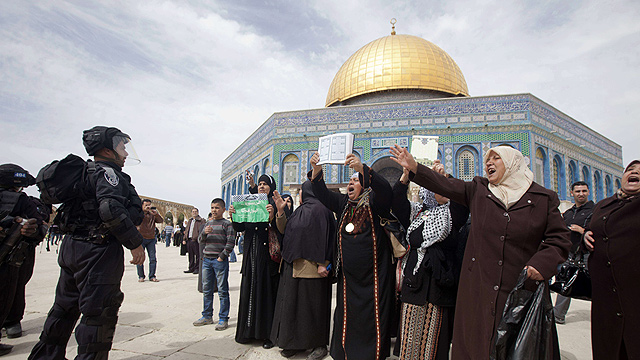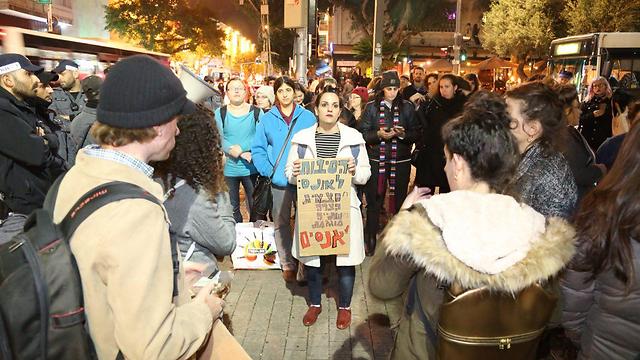
Survey: Israelis increasingly losing faith in government
Israel seems to be following world trend of rise in nationalism, growing discontent with established governments and political norms; survey also includes comparisons with other countries, finding it average or above average in areas such as freedom of the press and civil liberties.
A leading Israeli think tank on Monday said it has found that Israelis are increasingly losing faith in their government and most Israeli public institutions—findings that mirror the global trend of dissatisfaction and cynicism that helped propel Britain's exit from the European Union and the victory of US President-elect Donald Trump.
The Israel Democracy Institute also found a continuing nationalistic streak among the country's Jewish majority, with more than half of respondents in a nationwide survey opposed to allowing Arab political parties into the governing coalition.
Tamar Hermann, the professor who led the research, said the study found a "value shift" away from Israel's traditional liberal democratic roots that should concern its leadership.
"Israelis are shifting away from the cosmopolitan point of view to a more communitarian, nationalistic, ethnic, religious point of view, much like is happening in other countries," said Hermann, academic director of the Guttman Center for Public Opinion and Policy Research, which compiles the annual Israeli Democracy Index.
The study found a "significant drop" in the public's trust in Israeli political institutions.
Trust in the Knesset fell to 26.5 percent from 35 percent last year. Similarly, trust in the government fell to 27 percent from 36 percent, and three quarters of respondents now feel their politicians are detached.
The only institution that maintained its strong standing was the Israel Defense Forces, which is trusted by 90 percent of the Jewish public and 82 percent when the Arab minority is factored in.
While Hermann cited "global trends" for the sentiments in the poll, Israel has been undergoing its own process of rising nationalism in recent years, driven by failed peace efforts with the Palestinians, a yearlong wave of violence in Israel and the West Bank, three wars against Hamas militants in Gaza and the growing political power of religiously-motivated West Bank settlers in the government.
The survey, for example, found that 71 percent of Jewish respondents believe that human rights groups, which have been harshly criticized by Prime Minister Benjamin Netanyahu's coalition, cause damage to the state. That was up from 56 percent a year earlier.
Likewise, it found that 59 percent of Jews oppose having Arab parties as part of governing coalitions, and 52.5 percent of Jews believe that those who refuse to accept Israel as the nation state of the Jewish people should be stripped of their right to vote.
However, the survey also found that while more than half of Jews (53 percent) believe that Arab citizens are discriminated against, there is also marked support on the part of Jews to engage in social interactions including being neighbors, friends and coworkers.
Additionally, in terms of security, 72 percent of Jews think that decisions made regarding peace and security need to be made by a Jewish majority only. Furthermore, 62.5 percent of Jews believe the war on terror has no room for moral considerations and it should be permissible to use all means available to stop an attack. This sentiment is reflected in 51% of Jews believing that if the Shin Bet, IDF or Police arrest a suspect for terrorism, they should have full authority to conduct the investigation without legal constraints.
Hermann said that Netanyahu should be "very worried" about the shrinking level of public trust in the government, but that overall he might be pleased by the growing nationalist tide in the country. "He's not going to cry over the result," she said.
The survey included some bright spots, such as a widespread consensus that Israeli democracy must be maintained and high support for freedom of speech.
The survey also included comparisons with other countries, finding it average or above average in many key areas, such as freedom of the press and civil liberties. Israel ranked very high in political participation, and near the bottom in a measure of political stability and absence of violence.
Yohanan Plesner, president of the Israel Democracy Institute, urged the country's leaders to learn from the data.
"While there is overwhelming support for the notion of democracy, the democratic brand is still very strong. But the understanding or interpretation of what democracy is all about in some respects is extremely thin and requires immediate action," he said.














